Directory
- Share
Neha Rahman
- Alumni
- Canada
- 2020 MPhil Classics
- King's College
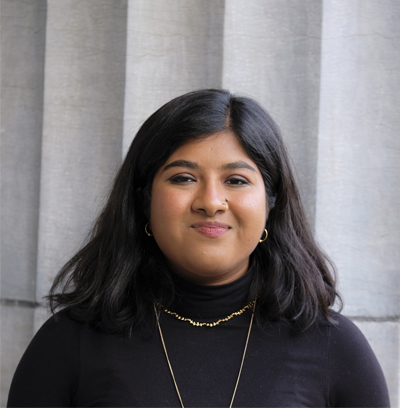
Neha Rahman
- Alumni
- Canada
- 2020 MPhil Classics
- King's College
Though I was born in Bangladesh, my family moved to Canada when I was three years old. I grew up using stories to puzzle out my place in the world. My love of classics began in my high school Latin class, and in completing my BA in Classics and History at McGill, I gained greater critical perspectives and practical skills. I took part in an archaeological dig in Southern Italy, and adapted and directed a play from Ancient Greek into English. I learned that studying the ancient world could be done in an outward facing way and learned to share these stories with a wider community. I also worked with youth engagement in politics confronting the barriers to democratic participation for young people. To find solutions, I turned to the ancient world and became interested in the lives of adolescents in a world where their roles in society were much less clearly defined, and yet parallel to our own in their liminality. In classics, I seek to understand the voices that have gone unheard for too long- youth, women, the working classes. All these intersecting identities have deep ties to my own story. I believe that better understanding the ancient world might give us the critical vocabulary to solve problems in our modern age as well.
Previous Education
McGill University Classics 2020
Sanjiv Ranchod
- Scholar
- South Africa
- 2022 CPGS Computer Science
- St John's College
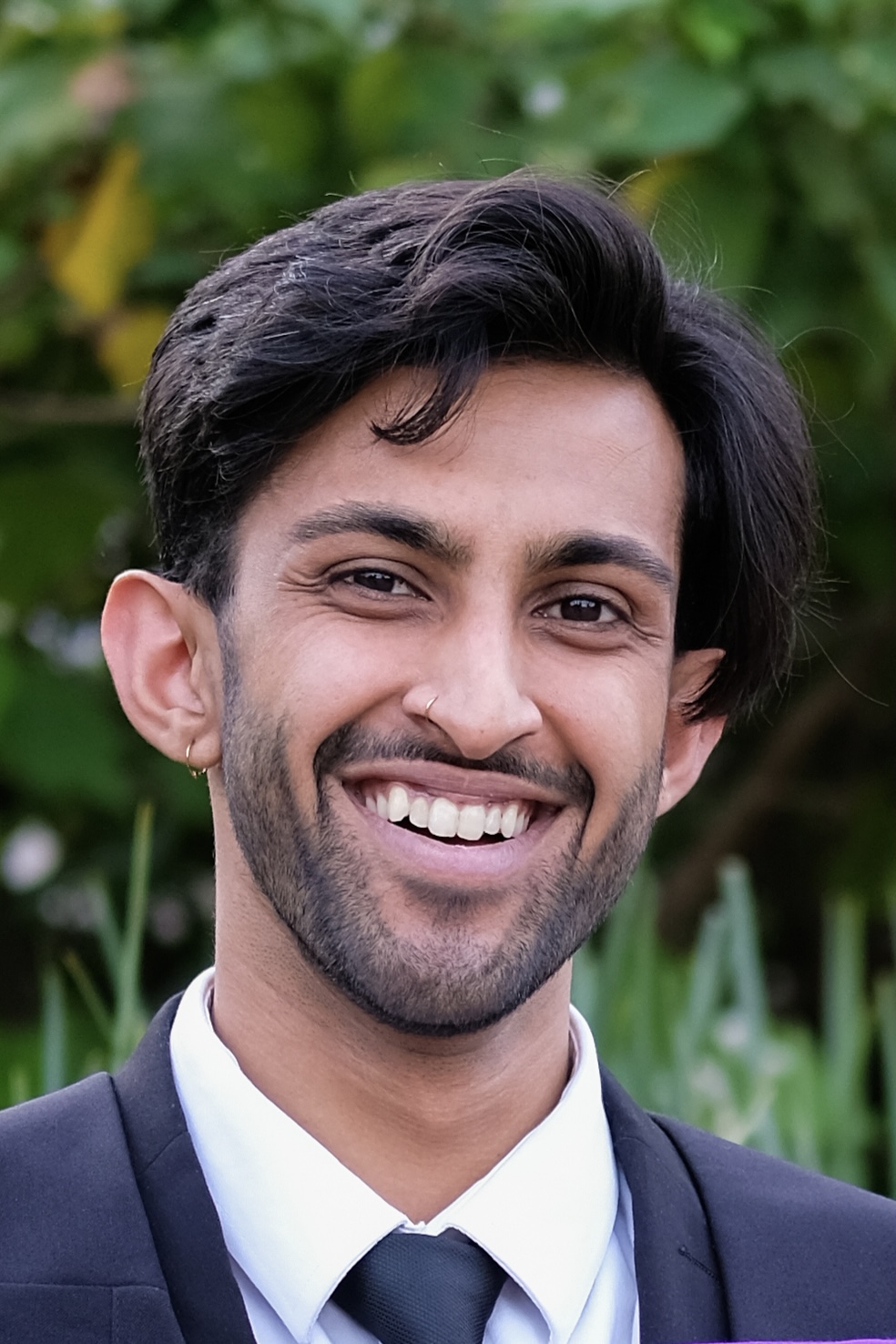
Sanjiv Ranchod
- Scholar
- South Africa
- 2022 CPGS Computer Science
- St John's College
During my BSc in Mathematics and Applied Mathematics at the University of Cape Town, I developed a passion for Category Theory and Mathematics Education. The former presented to me a framework of insight into the mathematical questions I had encountered through my interest in the field, while the latter expressed a means for me to contribute to the upliftment of young, interested students in South Africa. In continuing to my MSc in Mathematics I explored these interests further and, in particular, studied internal categorical structures, while gaining teaching experience at the university. The opportunity to read a PhD at Cambridge supported by a Gates Cambridge Scholarship allows me to further explore my interests in Internal Category Theory, Categorical Logic and Internal Languages and to make meaningful contributions to these fields. I hope to engage with a cohort of educationally interested students to further my growth as a teacher. It is my intension to help grow the Category Theory – and general mathematical – community in my home county as well as help improve the state of mathematics education at its tertiary institutions.
Previous Education
University of Cape Town Mathematics 2022
University of Cape Town Mathematics 2020
University of Cape Town Maths and Applied Maths 2019
Natalie Rebeyev
- Alumni
- United States
- 2015 PhD Medical Science @ CIMR
- Hughes Hall
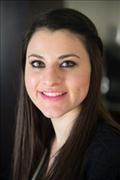
Natalie Rebeyev
- Alumni
- United States
- 2015 PhD Medical Science @ CIMR
- Hughes Hall
At Syracuse University, as a dual Biology and Judaic Studies major, I developed a deep-seated curiosity about human biology and disease alongside my study of the humanities. My early exposure to research led me to secure both on-campus and international research opportunities. I conducted pharmacological research with faculty at Upstate Medical University and cancer research at the Technion – Israel Institute of Technology. I will complete my undergraduate thesis on the role of a protein (erlin2) on intracellular protein degradation of the IP3 receptor. At Cambridge, I will be working with Dr. Paul Lehner to identify novel cellular receptors manipulated by viruses, which teaches us about viral pathogenesis. This work is of great importance because it has the capacity to lead to novel therapeutic approaches by targeting newly identified receptors. The lab uses proteomic approaches alongside genetic screening in human haploid cells. Further, silencing a retrovirus and looking at the viral transport/repressor complex is used to discover functions for previously identified and unidentified genes. In the future, I plan on attending medical school to inform my research as a physician-scientist and become a viral oncologist. Moreover, as a Bukharian woman, and as the first person to attend college from both sides of my family, I look forward to sharing my experiences and supporting the academic and professional goals of young women from traditional, immigrant communities worldwide.
Previous Education
Syracuse University
Tomer Reiter
- Alumni
- United States
- 2015 MASt Pure Mathematics
- Gonville and Caius College
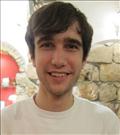
Tomer Reiter
- Alumni
- United States
- 2015 MASt Pure Mathematics
- Gonville and Caius College
Born in Israel, I moved to the United States when I was four years old and grew up mainly in Boston. Attending the Program in Mathematics for Young Scientists (PROMYS) in Boston was a pivotal point in my life. PROMYS is a six week summer program where high school students learn mathematics, specifically number theory. Here I found my passion for number theory and mathematics in general. Later summers I returned as a counselor and eventually served as head counselor. Through this I realized how excited I am to mentor and teach mathematics. At Carnegie Mellon University, I completed a major in mathematics and minor in computer science, further fueling my interest in mathematics and mentoring. In addition, I joined Alpha Epsilon Pi, a Jewish fraternity, and took on various leadership positions that made me grow closer to my Israeli heritage and cultural identity. I also took courses in Japanese language and culture to learn more about cultural differences and to further contextualize my identity. I am excited to attend Cambridge and take Part III of the Mathematical Tripos where I will delve into number theory, an area I am deeply interested in. After my time at Cambridge, I plan to attend a Ph.D. program in the United States and eventually become a professor. All the while, I hope to make contributions through teaching and mentoring just as PROMYS made an impact on me.
Previous Education
Carnegie Mellon University
Caroline Robertson
- Alumni
- United States
- 2009 PhD Psychiatry
- Lucy Cavendish College
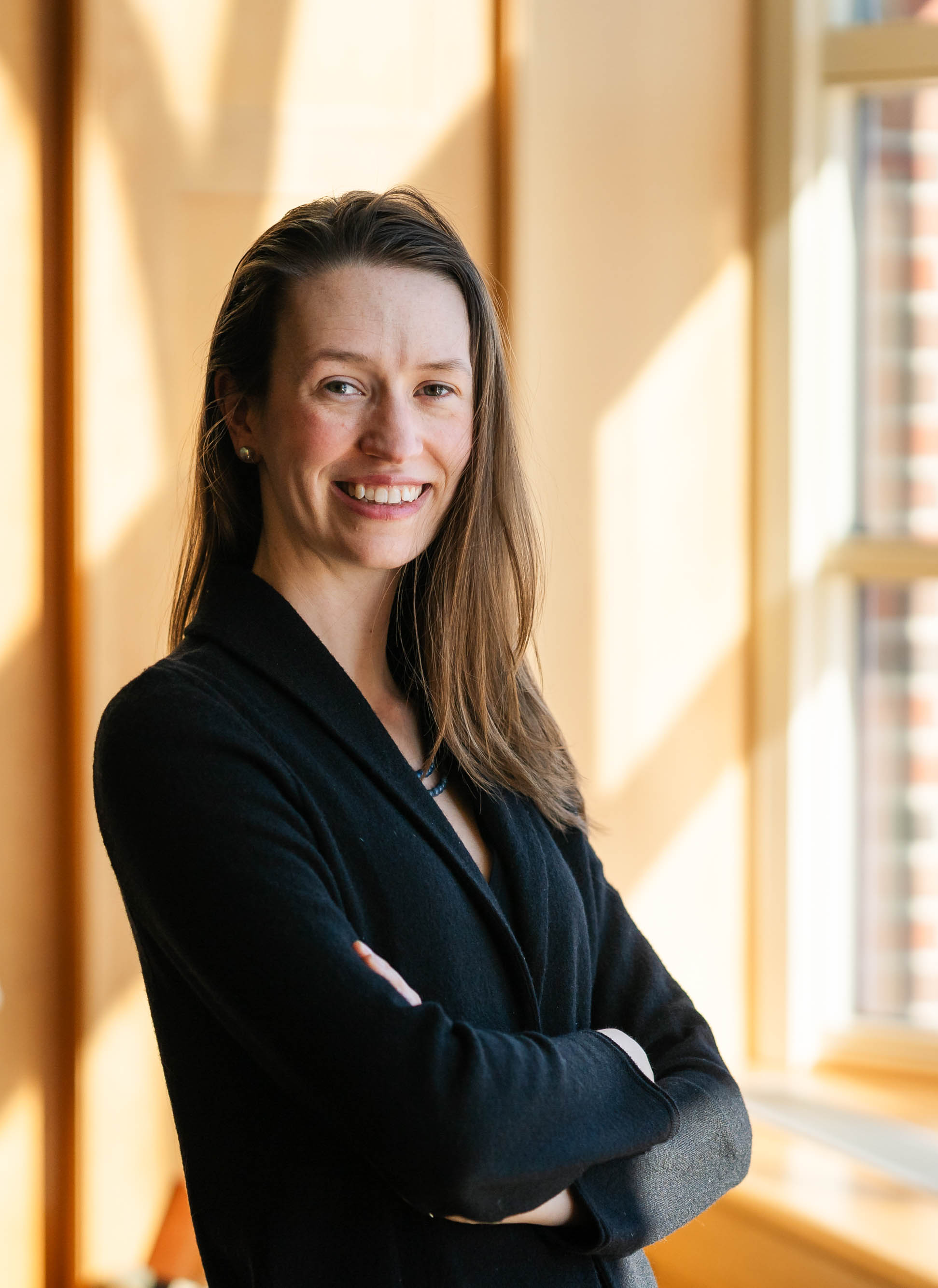
Caroline Robertson
- Alumni
- United States
- 2009 PhD Psychiatry
- Lucy Cavendish College
Caroline is an Assistant Professor in the Department of Psychological and Brain Sciences at Dartmouth College. Her research focuses on cognitive neuroscience approaches to memory, perception, and neurodiversity.
Caroline received her BA from Columbia University in 2009, where she studied neuroscience and philosophy. She received her PhD from the University of Cambridge in 2013, as a Gates-Cambridge Scholar and NIH-Cambridge Fellow. At Cambridge, Caroline worked in the labs of Dr. Chris Baker at the National Institutes of Health and Dr. Simon Baron-Cohen at Cambridge. She performed her postdoctoral research in the McGovern Institute for Brain Research at MIT with Dr. Nancy Kanwisher, where she held a junior fellowship in the Harvard Society of Fellows. Caroline was named a fellow of the American Academy of Achievement (2014), a NARSAD Young Investigator of the Brain and Behavior Foundation (2015), and a Kavli Fellow of the National Academy of Sciences (2016).
Previous Education
Columbia University
Jee Rubin
- Alumni
- United States
- 2018 PhD Education
- Jesus College

Jee Rubin
- Alumni
- United States
- 2018 PhD Education
- Jesus College
My undergraduate studies in opera performance led me to Jordan, where I served as a Fulbright fellow researching music education for young Syrians. I went on to live in the region for another five years, primarily working as an education consultant to humanitarian aid organizations. While this experience solidified my interest in education, it also raised difficult questions about the potential for aid efforts to harm those they aim to help.My doctoral research on the geopolitics of higher education in Syria was born out of these experiences and concerns. The project examines how foreign actors within the conflict—western aid donors among them—have come to shape universities throughout the country. It is my hope that research of this kind might inform more just practices of solidarity and support for Syrian academic communities.
Minami Seki
- Alumni
- Japan
- 2023 MPhil Asian and Middle Eastern Studies
- Trinity College
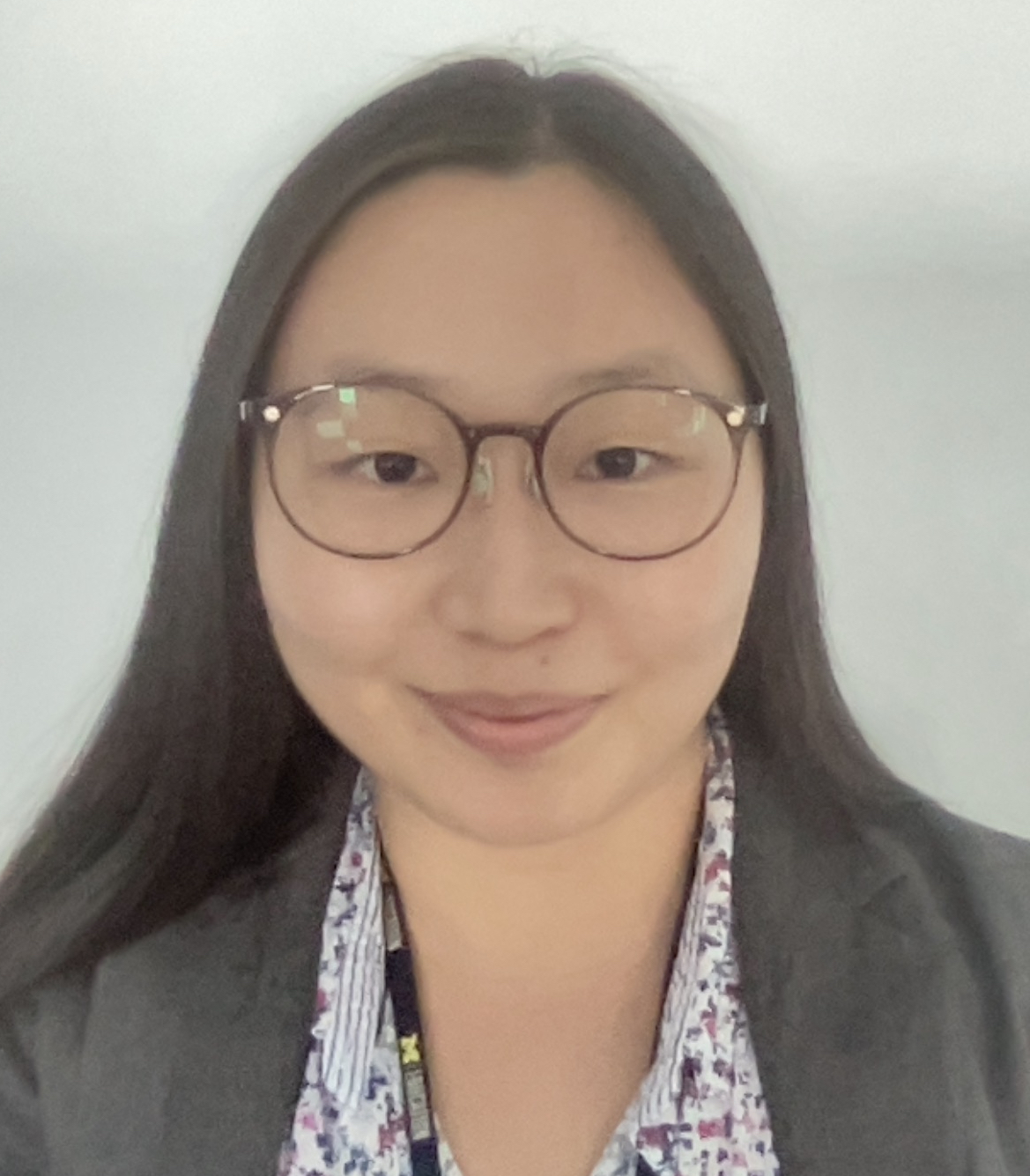
Minami Seki
- Alumni
- Japan
- 2023 MPhil Asian and Middle Eastern Studies
- Trinity College
As a woman raised in Japan, gender inequality in my country was something I was aware of from a very young age. It was during my undergraduate studies at the University of Michigan that I finally learned the language of social justice, power, and identities to express my protest against these inequalities. I learned about my country’s lack of progress towards women’s rights in the workplace through my research for my honors thesis on gender ideology and Womenomics, and then became a classroom teacher with the objective of reframing curricular material to be more gender inclusive. During my time as a teacher in Japan, I became involved in labor activism, and learned firsthand about the challenges of tackling gendered harassment in educational institutions as an employee. Through my MPhil in Japanese Studies at Cambridge, I hope to deepen my understanding of the cultural, historical, economic, and political factors that impact the formation of gender ideology in Japan today with a focus on the gendered messaging in moral education textbooks used in public education. I hope to eventually transform educational and workplace policies for women’s empowerment in Japan and in under-resourced international communities.
Previous Education
University of Michigan Educational Studies 2018
University of Michigan Economics, International Studi 2015
Megan Sim
- Alumni
- Singapore
- 2009 MPhil Social and Developmental Psychology
2010 PhD Social and Developmental Psychology - Sidney Sussex College
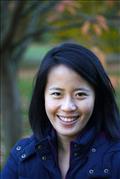
Megan Sim
- Alumni
- Singapore
- 2009 MPhil Social and Developmental Psychology
2010 PhD Social and Developmental Psychology - Sidney Sussex College
My academic research and career has been driven by my passion for using evidence to improve the lives of others – particularly children and people who are disadvantaged and vulnerable. My PhD research examined what actually happens when juveniles are interviewed by police officers; in particular, I examined the interrogation techniques used by police officers, and the effectiveness of these techniques at eliciting different responses from the young suspects.
After completing my doctorate in 2014 I designed and led evaluations, including of UK and European public policy initiatives at RAND Europe in Cambridge, UK, and of international development projects at the Centre for Evaluation and Development in Mannheim, Germany.
Emma Soneson
- Alumni
- United States
- 2018 PhD Psychiatry
- Clare College

Emma Soneson
- Alumni
- United States
- 2018 PhD Psychiatry
- Clare College
Emma graduated with a PhD in Psychiatry in 2023. Her doctoral research focused on how public health approaches can improve the identification of and response to mental health difficulties in children and young people. Throughout her time at Cambridge, Emma's research, leadership, and impact were recognised with several awards, including the Bill Gates Sr. Prize, the Clinical School's Milo Keynes Prize for Outstanding Dissertation, the Vice Chancellor's Awards for Research Impact and Engagement, and the NIHR Mental Health Research Incubator's Prize for 'Collaborative Involvement of Patients and the Public'.
Emma is currently a Senior Postdoctoral Researcher in the Department of Psychiatry at the University of Oxford as well as a Fulford Junior Research Fellow at Somerville College. Her varied research programme covers many aspects of child and adolescent mental health, including psychiatric epidemiology, intervention development and evaluation, implementation, and methodological research. The ultimate goal of her work is to reduce the incidence, prevalence, and impact of child and adolescent mental health difficulties, with a particular focus on better supporting children and adolescents from marginalised and minoritised groups.
Previous Education
Yale University
University of Cambridge
Links
https://www.psych.ox.ac.uk/team/emma-soneson
https://twitter.com/emma_soneson
Parvathi Subbiah
- Alumni
- United States
- 2016 PhD Latin American Studies
- Clare College
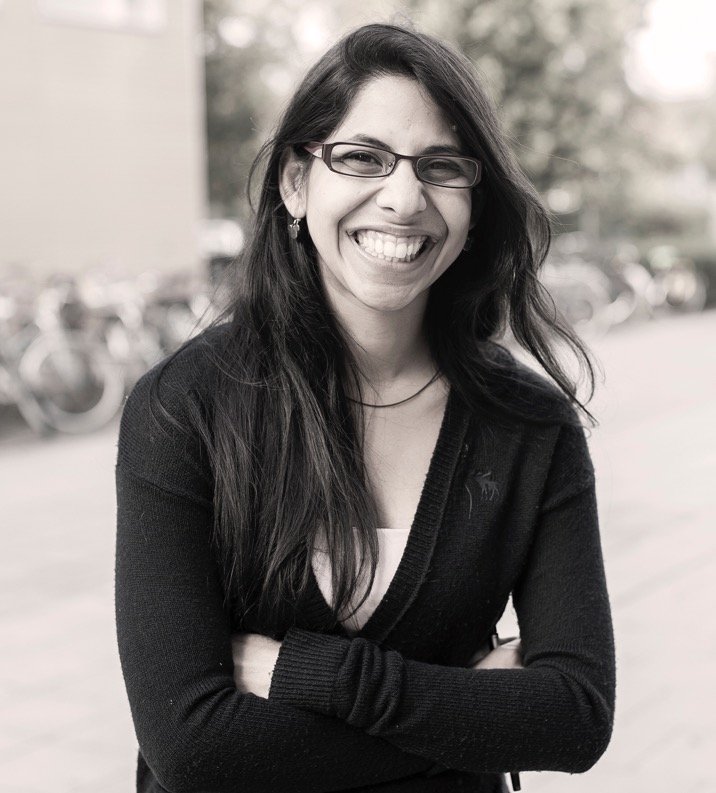
Parvathi Subbiah
- Alumni
- United States
- 2016 PhD Latin American Studies
- Clare College
Previous Education
University of Southern California
University of Cambridge
Reetika Subramanian
- Alumni
- India
- 2019 PhD Multi-disciplinary Gender Studies
- Queens' College
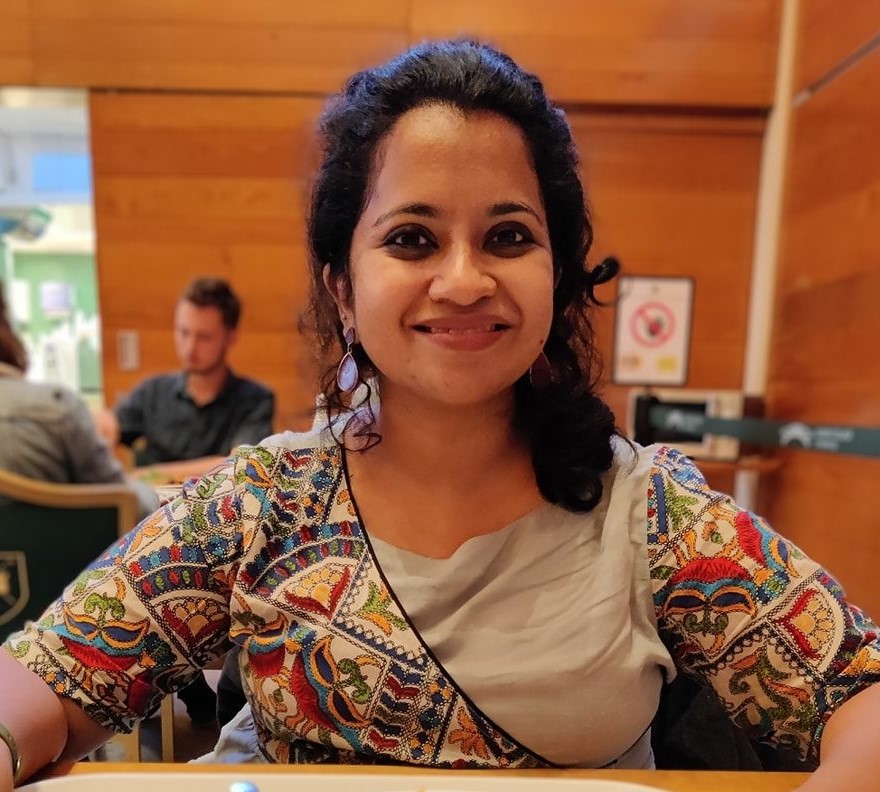
Reetika Subramanian
- Alumni
- India
- 2019 PhD Multi-disciplinary Gender Studies
- Queens' College
Early marriage and bridal trafficking in Rajasthan, sexual violence in Mumbai, female circumcision among Dawoodi Bohras: my experiences as a journalist and researcher have exposed me to diverse geographies, socio-economic realities and cultural prejudices that young women across India face. Home, however, is the place where I first found my bearings. As a survivor of domestic violence, my feminism got defined by my mother's everyday negotiations within the structures that cultivate and normalise the culture of silence. It drove me to challenge patriarchal notions of leadership and become sensitive to differences. Gender became a way of seeing the world. Backed by my rich field insights, multimedia skills and a feminist consciousness, I am excited to return to Cambridge to pursue my PhD as a Gates Cambridge scholar. My study straddles the areas of climate justice and gender equality. In India's historically drought-prone and caste-ridden Marathwada region, I seek to combine a multi-sited feminist ethnography with an informed interpretation of oral folk poetry, to understand the historical compulsions, lived experiences and gendered labour burdens of Dalit and Adivasi girls in a climate crisis. My fundamental interest in pursuing the project stems from my yearning to reconcile collaborative storytelling with pressing marginalised realities.
Previous Education
University of Cambridge Multi-disciplinary Gender Stud 2017
Tata Institute of Social Sciences Media and Cultural Studies 2015
Aashka Tank
- Alumni
- India
- 2024 MPhil Innovation, Strategy and Organisation
- Robinson College
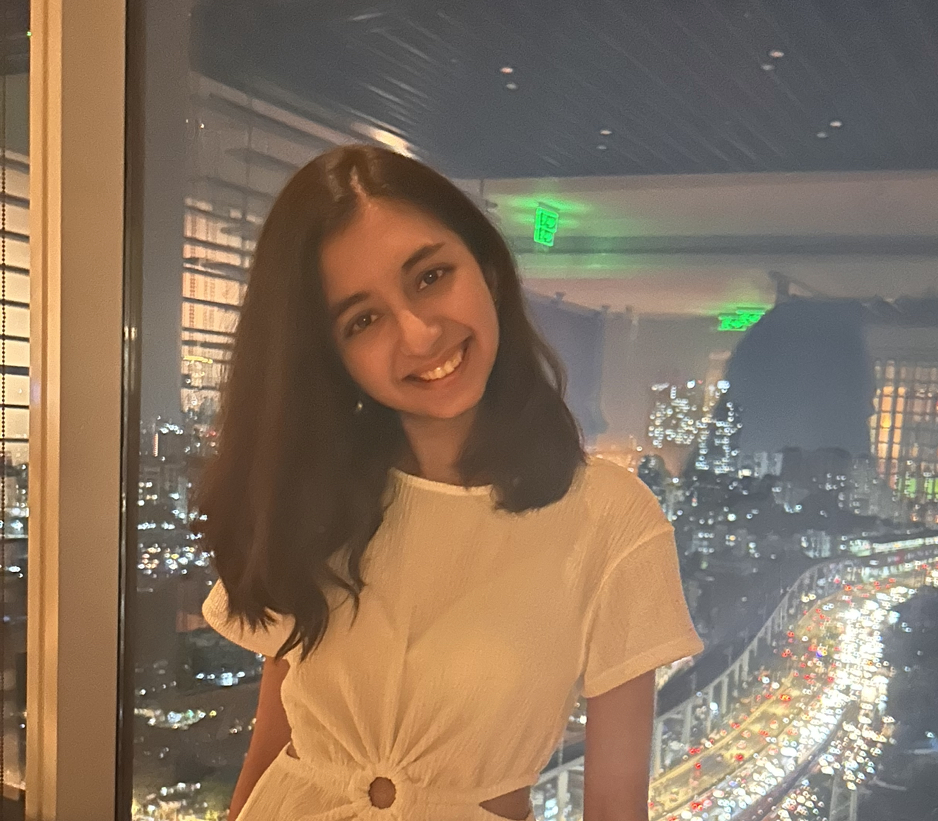
Aashka Tank
- Alumni
- India
- 2024 MPhil Innovation, Strategy and Organisation
- Robinson College
My early stint as the youngest intern in the upper house of the Indian parliament and more recently, on an election campaign for the Minister of Industry and Commerce, as well as devouring narrative non-fiction fuelled a resolve to bend the arc of my environs. Thus, being offered a scholarship with an emphasis on leveraging one's education to grapple with the thorniest challenges in the world is an incredibly salient milestone. While my experience as a research lead at King’s introduced me to organisational theory, independently exploring the notions of dynamic capabilities and the innovators’ dilemma that established behemoths face allowed me to make sense of both impact driven startups in Mumbai and fintech upstarts bent on scaling up that I had encountered in London. This led me to my degree and now I plan to use the tripartite lenses of innovation, strategy and organisation to unpack the conception of imprints as internal startups in the publishing industry; hedging risks through different kinds of title acquisitions and continually remoulding the cultural strategy of the business to capture the zeitgeist.
Mayra Tenorio Lopez
- Alumni
- Mexico
- 2017 MPhil Multi-Disciplinary Gender Studies
- Newnham College
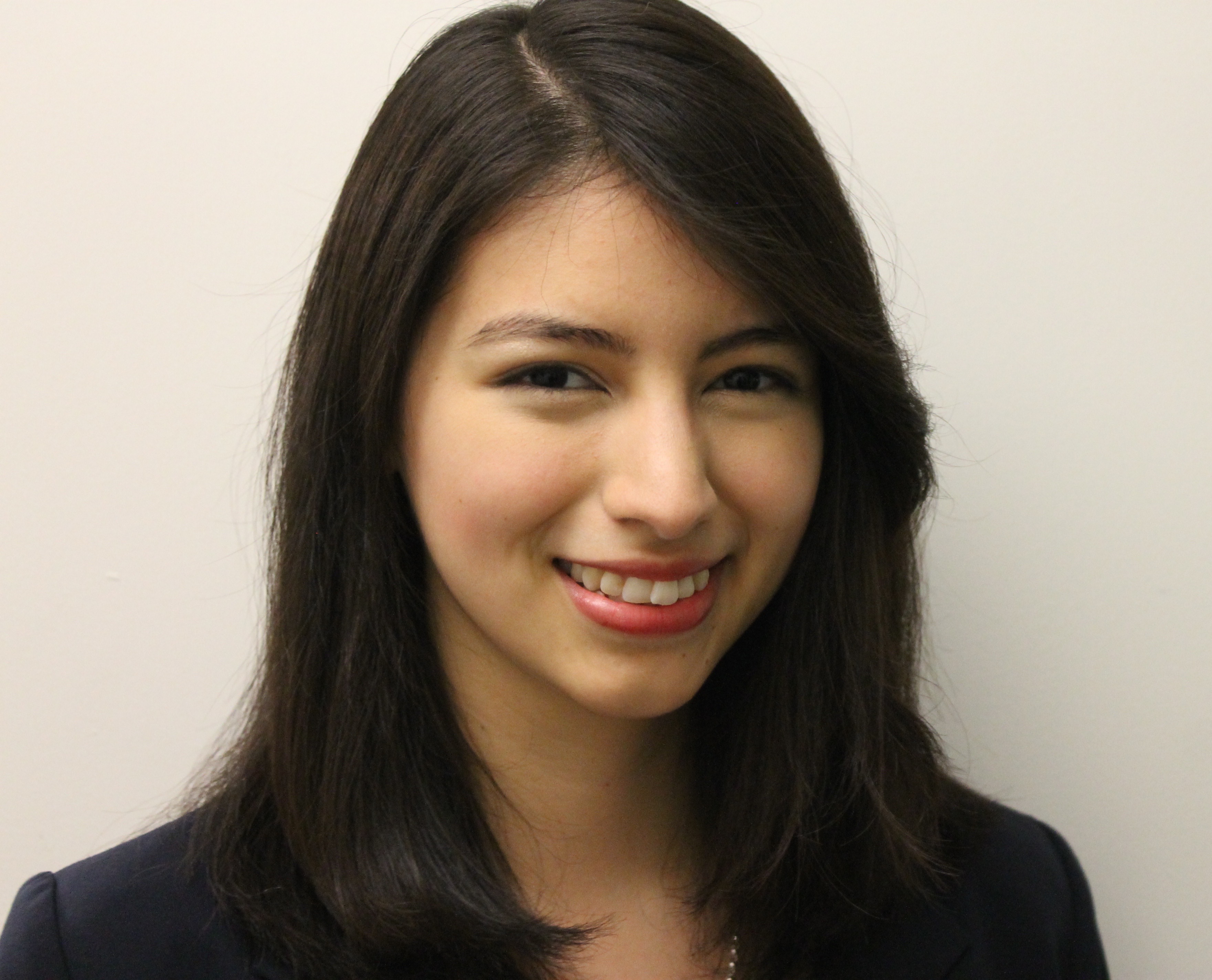
Mayra Tenorio Lopez
- Alumni
- Mexico
- 2017 MPhil Multi-Disciplinary Gender Studies
- Newnham College
Women in Mexico and across the border in the U.S raised me. From a very young age I saw how gender inequality both limited their lives and increased their susceptibility to violence. Thus, the eradication of gender stratification is the focus of my research and the driving force behind my activism with women and girls. At Swarthmore College I studied Sociology & Anthropology and completed two research projects trying to understand the inconspicuous ways in which gender inequality persists and adapts. After graduation, I listened to and documented women’s stories of survival and collaborated with female-led grassroots movements in nine countries as a Thomas J. Watson Fellow. Women’s stories of resilience and hope affirmed my commitment to produce knowledge that centers the experiences of women of color, and to support efforts that intervene in the normalization of violence against women. My research at Cambridge will explore the creation of corporeal responses to violence and collective resistance with other women from the perspective of indigenous women in Guatemala. As an aspiring feminist scholar in the social sciences, my studies will prepare me to engage rigorously with the challenges posed by gender inequality, and further, expand my analysis and vision so that my work may expose and create alternative worlds and possibilities for everyone, especially women.
Previous Education
Swarthmore College
Anne Thomas
- Alumni
- United States
- 2018 PhD Plant Sciences
- Newnham College
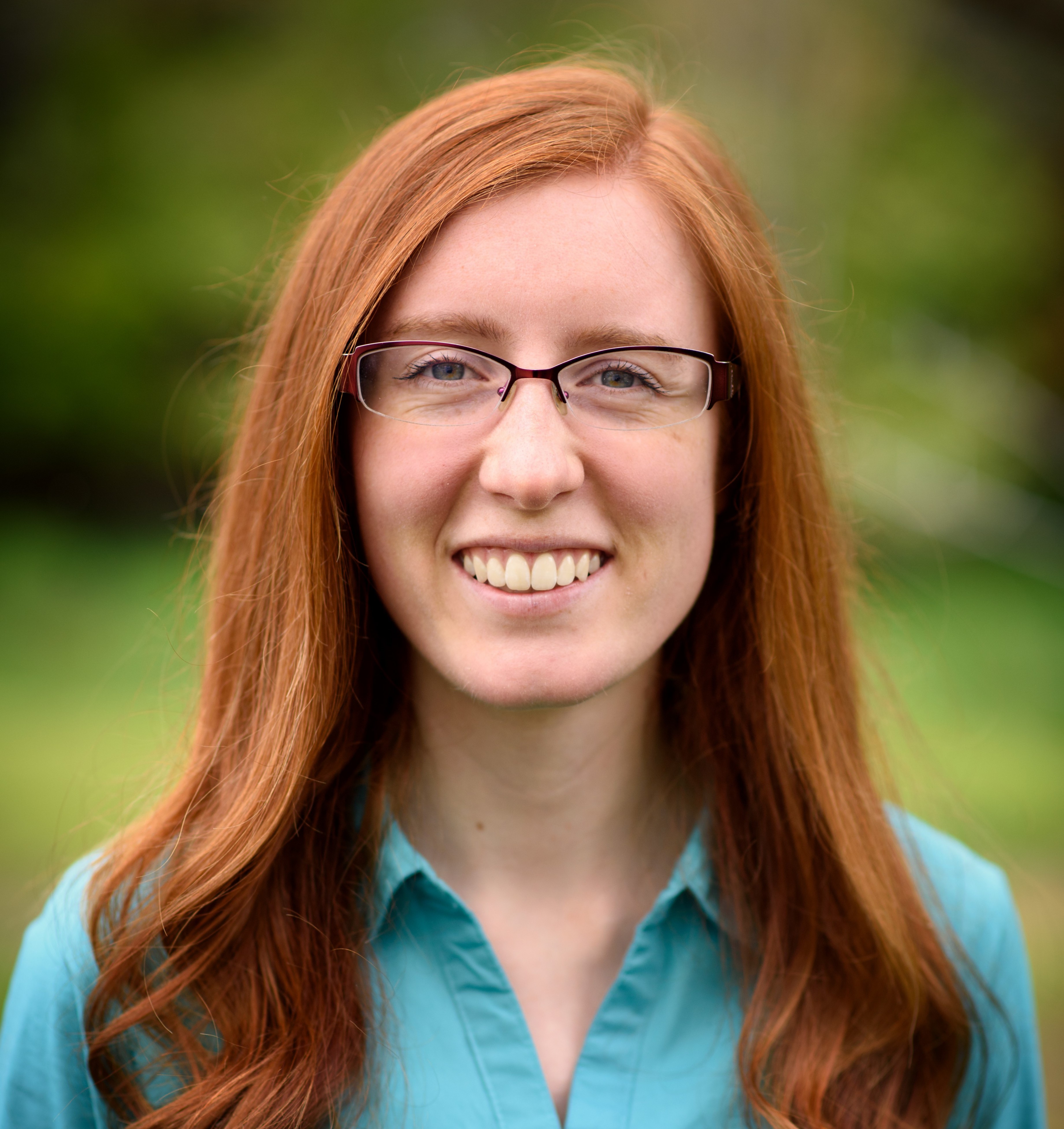
Anne Thomas
- Alumni
- United States
- 2018 PhD Plant Sciences
- Newnham College
I began my undergraduate degree at Brigham Young University in Utah as a Conservation Biology major with the goal of intimately understanding the natural world and contributing to its protection in the face of rapid environmental change. As I delved into research topics such as plant community shifts with climate change, I learned how crucial computational tools and approaches are in addressing the complexity of global change, and as result, added a Bioinformatics major. At the same time, doing field work in the deserts and mountains of the American West reaffirmed to me the importance of close contact with the ecosystems we seek to understand in order to better protect and manage them. As a Plant Sciences PhD candidate at Cambridge, I plan to leverage both computer modeling and empirical field approaches to predicting the biogeography and resilience of alpine plants in the face of climate change. My research aims to inform both eco-evolutionary theory and conservation efforts for sensitive alpine systems. I care deeply about cultivating our human relationship with nature, making it one of my goals as a scientist and a citizen to help engage others in conservation through outreach and education. I am thrilled to join and learn from the vibrant, interdisciplinary Gates Cambridge community as we do our part to address complex global issues.
Previous Education
Brigham Young University Utah
Anke Timmermann
- Alumni
- Germany
- 2003 PhD History & Philosophy of Science
- Robinson College
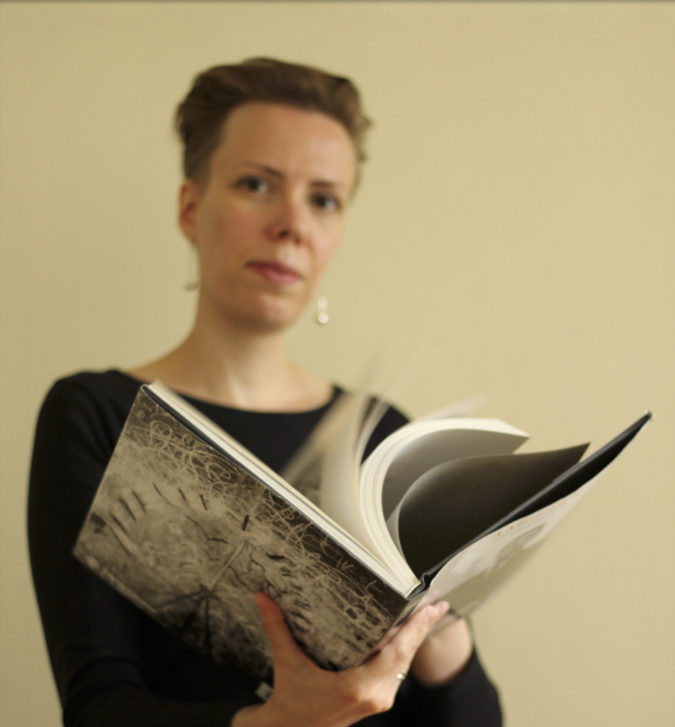
Anke Timmermann
- Alumni
- Germany
- 2003 PhD History & Philosophy of Science
- Robinson College
I have been working internationally with historic objects and cultural heritage for more than 20 years. Following my PhD in History of Science at Cambridge I held positions at the Chemical Heritage Foundation (now Science History Institute) in Philadelphia, PA; worked on the digital edition of Bess of Hardwick's correspondence at the University of Glasgow; and researched scientific manuscripts and introduced medical students to the history of their discipline at the Medical University of Vienna.
In 2013-14 I was the Munby Fellow in Bibliography at Cambridge University Library, and then launched a career as an antiquarian book specialist at one of the oldest antiquarian booksellers in London, Bernard Quaritch Ltd. Since 2018 I have been the co-founder and -owner of Type & Forme Rare Books & Manuscripts in Isaac Newton's hometown, Grantham.
I serve on the Council of the Bibliographical Society (UK) and am also a judge for the Rose Book Collecting Prize (Cambridge University) and the David Murray book collecting prize (Glasgow University). Alongside my work with institutions and collectors I also write on book history and related subject.
IN THE MEDIA
Darwin Notebooks returned:
https://www.typeandforme.com/index.php/2022/04/11/charles-darwins-notebooks/
(see also my interview with the University Librarian Dr Jessica Gardner and the Director of the Darwin Correspondence Project Prof. Jim Secord in Fine Books & Collections: https://www.finebooksmagazine.com/issue/darwin-notebooks-and-letters-reunited-anniversary-year)
Why Rare Books Matter to a Younger Generation: https://ilab.org/article/new-to-ilab-speaking-to-anke-timmermann-of-type-forme-and-why-rare-books-matter-to-a-younger-generation
Gates Cambridge mentorship programme:
https://www.gatescambridge.org/about/news/gates-cambridge-mentors-forging-bonds-and-giving-back/
Previous Education
Trinity College Dublin
Heidelberg University
University of Glasgow
Links
https://www.typeandforme.com
https://www.facebook.com/TypeAndForme
Tomas Tokovyi
- Alumni
- Ukraine, Israel
- 2023 MPhil Bioscience Enterprise
- St John's College
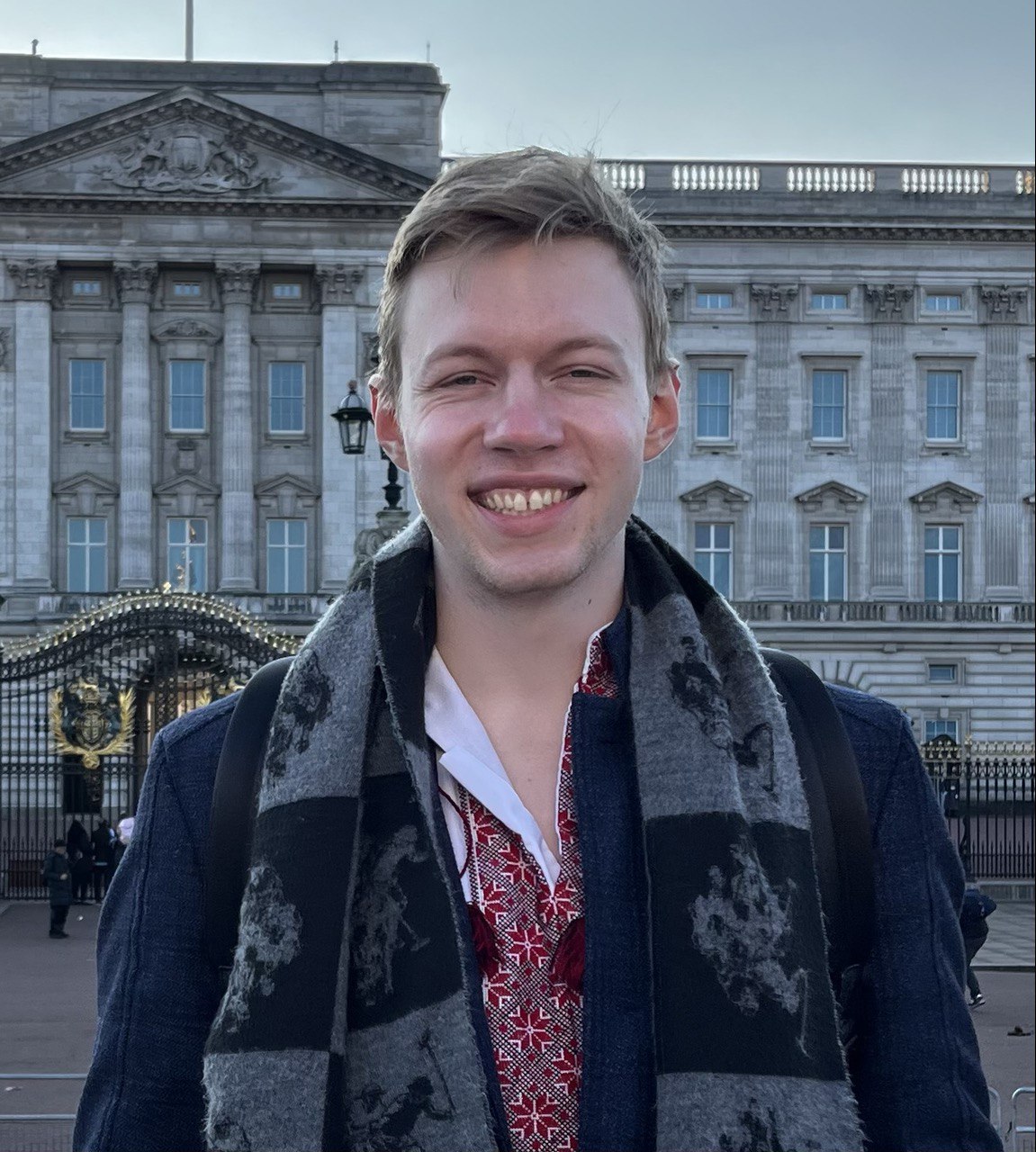
Tomas Tokovyi
- Alumni
- Ukraine, Israel
- 2023 MPhil Bioscience Enterprise
- St John's College
I grew up in Bila Tserkva, Ukraine and at the age of 15, I was one of three students from the country to win a full scholarship to study A-level studies in the UK (HMC Projects 2017-2019).With an interest in molecular medicine, I decided to pursue BSc Biochemistry at the University of Bristol, where I was ranked as the best student (n>120) for three consecutive years.For my masters, I explored the intersection between genetics and data science at the University of Oxford where I was awarded a full-ride academic scholarship (Clarendon Scholarship). Throughout my studies, I developed a keen interest in biotechnology and enterprise..Nevertheless, as much as I am passionate about biotechnology, what I ultimately care about the most is people. After Russia invaded Ukraine, I have been leading various large-scale fundraising events and educational projects to support Ukraine.At Oxford, I became the Vice-President of the Ukrainian Society and together with friends raised over £150,000. My ultimate goal is to contribute to the reconstruction of Ukraine by developing a strong biotech community there. In the future, I hope to establish incubators for rising start-ups and inspire the next generation of young scientists.
Previous Education
University of Oxford Genomic Medicine 2023
University of Bristol Biochemistry 2022
Kim Van Daalen
- Alumni
- Netherlands
- 2018 PhD Public Health and Primary Care
- Newnham College

Kim Van Daalen
- Alumni
- Netherlands
- 2018 PhD Public Health and Primary Care
- Newnham College
Growing up in the Netherlands, I was always way too curious, asking too many questions to understand the ‘’How’’ and ‘’Why’’ (I had my own little blue microscope when I was 8, telling my family about the bacteria in water). This curiosity only grew stronger during my BSc Biomedical Sciences at Utrecht University, which I combined with a BSc interdisciplinary honours program. At the same time, driven by my values - the right to healthcare, equality, peace and safe and health environment for everyone - I developed a strong passion for Global Health and Climate Change action and dedicated my time to work for international non-profit organisations including: IFMSA, focussing on the improvement of Global Health operating in 127 countries; UAEM; UNFCCC-YOUNGO and other organisations to make and advocate for change. I realised that I could combine this curiosity and passion by studying Global Public Health and started a MPhil Public Health at the University of Cambridge. From here, I am now continuing into a PhD in Public Health & Primary Care. As 80% of premature non-communicable diseases (NCDs) deaths happen in LMICS and local environmental risk factors (e.g. air pollution, water pollution) are increasingly being associated with NCDs, it is critical to develop effective, context specific interventions. Therefore, my PhD will focus on the environmental risk factors for non-communicable disease in developing countries; comparing the urban and rural populations (specifically in South Asia). I am incredibly grateful to become a part of the Gates Community and to be able to dedicate the next years to researching this topic.
Previous Education
Utrecht University
University of Cambridge
Derron Wallace
- Alumni
- United States
- 2010 PhD Education
- St John's College

Derron Wallace
- Alumni
- United States
- 2010 PhD Education
- St John's College
Derron Wallace is a sociologist of race, ethnicity and education. He specializes in cross-national studies of structural and cultural inequalities in urban schools across global cities. His current research examines the educational outcomes of Black youth in London and New York City.
Derron is a Phi Beta Kappa and summa cum laude graduate of Wheaton College (Massachusetts), where he studied sociology and the African diaspora. He earned his Ph.D. at the University of Cambridge, and was awarded American Educational Research Association's Distinguished Dissertation Award in 2015.
With wide-ranging experiences in educational activism, analysis, policy and research, Derron has worked with nomads in Ethiopia, young people with disabilities in Rwanda, immigrant youth in London, economically disadvantaged rural youth in Jamaica, English language learners in Thailand and gifted students in New York City. He served as Special Assistant to the Minister of Education in Rwanda. He also worked as a professional community organizer and consultant with local educational authorities in London.








